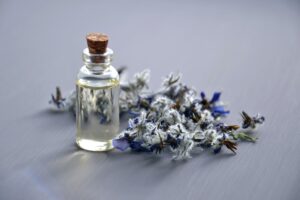The scent of a freshly cleaned home may induce feelings of relaxation. However, this often comes at the cost of exposing our loved ones to the harsh chemicals found in the vast majority of brand-name cleaning products. There is a safer way to clean our homes, and it involves pantry staples and essential oils.
Using a few simple recipes, toxic cleaners can be replaced with alternatives that are both cost-effective and equally disinfecting.
What Exactly Are Essential Oils?
Before incorporating essential oils into your cleaning routine, you should be aware of a few things.
- Essential Oils derived from plants. In reality, countless kilograms of plants are required to produce a single bottle. This makes them extremely potent, requiring typically only a few drops.
- Not all scented oils are identical! Check labels for the phrase “essential oil.” Fragrances and perfumes are synthetic substances that do not offer the same benefits as natural ingredients.
- Avoid applying to the skin undiluted. Some botanical extracts can be applied directly to the skin, but only if instructed to do so by a specialist in the field. And never directly apply undiluted oils to infants or children.
- Research first. Before bringing these items into your home, you should conduct research if you are pregnant. Certain oils are contraindicated for pregnant women. Nota bene: the mentioned oils are safe for pregnant women.
- Natural ingredients are not always pet-friendly. Similar to certain botanicals and plants, their derivatives are toxic to animals. Comprehend what you are utilizing!
The majority of these bottles have a maximum shelf life of five years.

Most essential oils are rich in antibacterial, antifungal, and antiviral properties, making them excellent alternatives to the commercial, toxic cleaners we are accustomed to using.
There are common and readily available essential oils that all households should have on hand for green cleaning…
5 Essential Oils To Replace Toxic Cleaners
1. Oil Essential to Tea Tree
The most potent of all essential oils is tea tree oil. This oil’s antimicrobial, antifungal, antiseptic, antibacterial, and insecticidal properties make it ideal for cleaning high-traffic areas like the kitchen and bathroom. It is common practice to combine this product with another fragrance, such as lemon or lavender (both of which are on this list), to create a more enticing aroma.
2. Lavender Essential Oil
As one of the seven poly valences (effective against a variety of toxins), its antiseptic, antiviral, and antibacterial properties make it a highly efficient cleaner. According to research, lavender also has calming effects on the body, making it an excellent choice for cleaning bedrooms and other spaces that could benefit from a calming atmosphere.
3. Lemon Essential Oil
Lemon has a long history of use as a natural household cleaner and is an excellent addition to our arsenal. Studies indicate that in addition to possessing antiseptic, antimicrobial, and antibacterial properties, it can also improve mood.
4. Peppermint Essential Oil
Due to its effects on the digestive system, peppermint is ubiquitous and widely utilized in our cuisine. In addition, its potent antiseptic and astringent properties promote mental clarity, alertness, and work performance, making it an ideal cleaner for the home office and other work areas.
5. Sweet Orange Essential Oil
A recent study revealed that sweet orange extract inhibits E. coli and Salmonella, making it an ideal oil for cleaning the kitchen, particularly when raw food is being prepared. Similar to lemon, it is a known antiseptic, antifungal, and antibacterial ingredient that also improves mood.

Common Green Cleaning Recipes Using Essential Oils
All of the products listed in this post are excellent for general household cleaning, so feel free to use any of them in the recipes that follow.
Frequently, a product’s intended application influences the selection process. When developing new recipes, use these ingredients sparingly, as they are extremely potent.
These oils, when combined, create a unique and pleasant fragrance
Spray for Kitchen and Bathroom Counters
- Vinegar: ½ cup \s Water: ½ cup
- Essential Oil: 20 drops
Included in the essential oils recommended are orange, tea tree, and/or lemon.
Antibacterial Spray
- Vodka: ½ cup
- Water: ½ cup
- Essential Oil: 75 drops
The recommended ingredients include lavender, peppermint, and lemon.
Window Cleaner
- Water: 2 ounces
- Essential Oil: 10 drops
The products recommended contain either lemon or lavender.
Bathroom Cleaner
- Water:1/2 cup
- Essential Oil: 50 drops
We recommend tea tree oil.
Sticky or Dry Gum or Debris
On a cotton swab, apply undiluted sweet orange and massage until the stain is removed. It will not stain fabric but immediately launder it. Conduct a test on a small, hidden piece of furniture before using the gum or sticky residue on the furniture.
Essential oils have many more applications than just cleaning. Each botanical has specific health benefits, frequently affects mood, and can heal internal and external wounds because it is derived from plants.
There is a wealth of information available regarding the uses of essential oils. If you conduct sufficient research, you will soon discover all the ways essential oils can benefit you and your home.
- Did you find it practical to replace toxic cleaners with essential oils for cleaning purposes?
If you enjoyed this blog post, share it with your friends!
